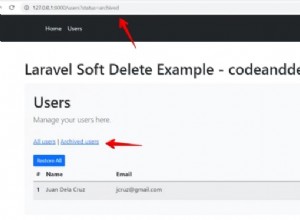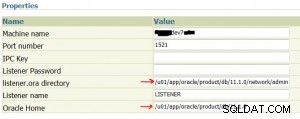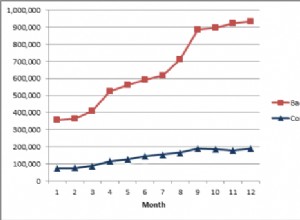De aqui :
Janelas
- Localize o my.ini, que é armazenado na pasta de instalação do MySQL.
Por exemplo,
C:\Program Files\MySQL\MySQL Server 5.1\my.ini - Abra o "my.ini" com nosso editor de texto favorito.
#Path to installation directory. All paths are usually resolved relative to this.
basedir="C:/Program Files/MySQL/MySQL Server 5.1/"
#Path to the database root
datadir="C:/Documents and Settings/All Users/Application Data/MySQL/MySQL Server 5.1/Data/"
Encontre o
“datadir” , é onde o MySQL armazena os dados no Windows. Linux
- Localize o my.cnf com o comando find / -name my.cnf.
example@sqldat.com:~$ find / -name my.cnf
find: /home/lost+found: Permission denied
find: /lost+found: Permission denied
/etc/mysql/my.cnf
- Visualize o
my.cnfarquivo como este:cat /etc/mysql/my.cnf
example@sqldat.com:~$ cat /etc/mysql/my.cnf
#
# The MySQL database server configuration file.
#
# You can copy this to one of:
# - "/etc/mysql/my.cnf" to set global options,
# - "~/.my.cnf" to set user-specific options.
#
[mysqld]
#
# * Basic Settings
#
user = mysql
pid-file = /var/run/mysqld/mysqld.pid
socket = /var/run/mysqld/mysqld.sock
port = 3306
basedir = /usr
datadir = /var/lib/mysql
tmpdir = /tmp
language = /usr/share/mysql/english
skip-external-locking
- Encontre o
“datadir”, é aqui que o MySQL armazena os dados no sistema Linux.




